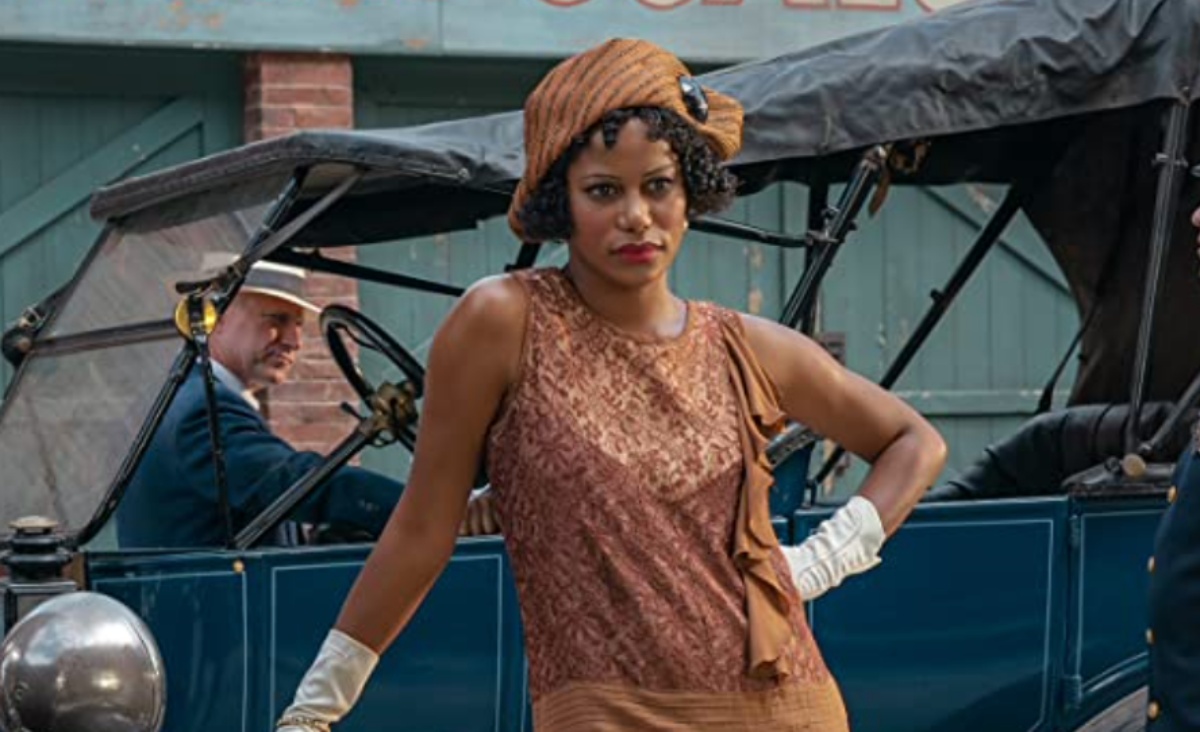Ma Rainey’s Black Bottom: August Wilson’s Women Are Some of His Best Characters


Netflix’s Ma Rainey’s Black Bottom is an interesting film, based on the August Wilson play of the same name. Criticism of the movie has focused on how it is shot, but there is also a question of how women in the film are depicted.
There are only two women in Ma Rainey, the titular blues singer played by Viola Davis and Taylour Paige as Dussie Mae, Ma’s young girlfriend. Paige’s Dussie Mae is a character we don’t really get a lot of in the film. She is a subject of desire for both Ma and Chadwick Boseman’s Levee Green.
Under the direction of George C. Wolfe, Dussie Mae remains an active presence, even though she doesn’t have many lines. She is always looking around and taking something in, almost cat-like in her observations. Much like the others caught up in Ma’s orbit, she is another Black person attempting to make something of her life despite all the racism that exists in both the North and South.
In speaking to Taylour Paige, she told me about how she connected to the character by seeing Dussie Mae as an extension of the struggles Black people were dealing with at the time.
“Dussie is just like, I’m going to go [with Ma]. Like this woman has figured it out somewhat,” Paige said. “She wants love and validation. And she wants, in a way, some direction, she’s not going back, she’s going forward. And she doesn’t know what that is, but she knows it ain’t going backwards. And I think she’s very much like wants to make her presence known because she feels very much disposable because she is, and she’s a woman.”
To Paige, it wasn’t just playing a character, it was “playing our ancestors.”
That type of connection taps into the kind of women that August Wilson wrote about in his plays. Sandra G. Shannon wrote in “The Fences They Build: August Wilson’s Depiction of African-American Women” that:
Wilson not only places African-American women in traditional roles, such as nurturing wives, mothers, organizers, and pillars of strength, but he also portrays free-wheeling, independent sides of them which are skeptical of men and the demands of marriage and family. Yet Wilson’s success in portraying the realities of African-American women does not rest with his faithfulness to these stock characters; rather with his discretion in combining aspects of a wide range of their humanity. His most provocative African-American women, for example, are those who choose not to abandon their desire to nurture but who do so while asserting conditions of their own independence.
With Ma Rainey specifically, we see a woman at the seat of that power and despite those holding the cashbooks, a woman doing her best to be independent. Dussie is an extension of that ideal because although she flirts with Levee, she knows that what matters for her as a Black woman is to survive.
Yes, it can be hard to watch so many scenes of men talking, but in my own opinion, the women in Ma Rainey highlight what can be great about the way these stories are told—black people trying to survive in a bitter cold world, and that extends to the women.
(image: Netflix)
Want more stories like this? Become a subscriber and support the site!
—The Mary Sue has a strict comment policy that forbids, but is not limited to, personal insults toward anyone, hate speech, and trolling.—
Have a tip we should know? [email protected]
